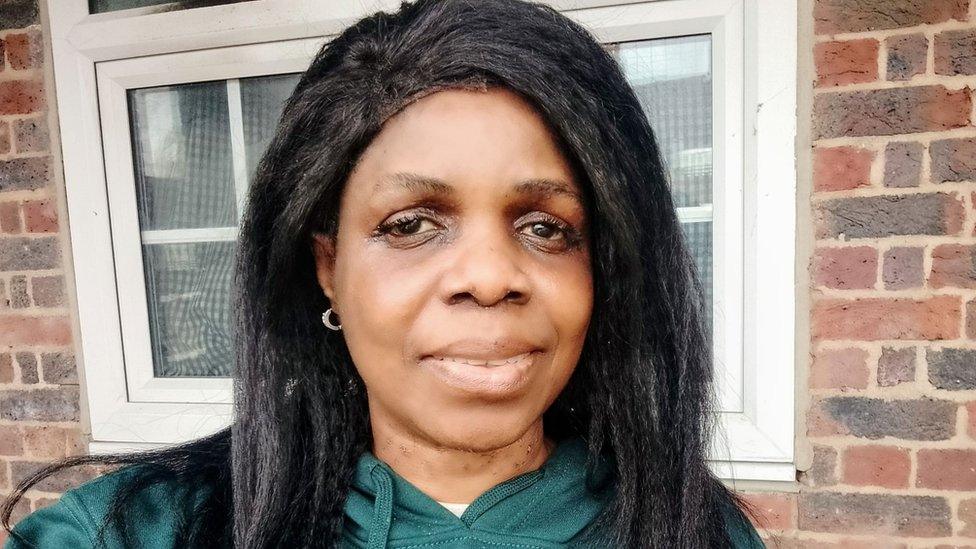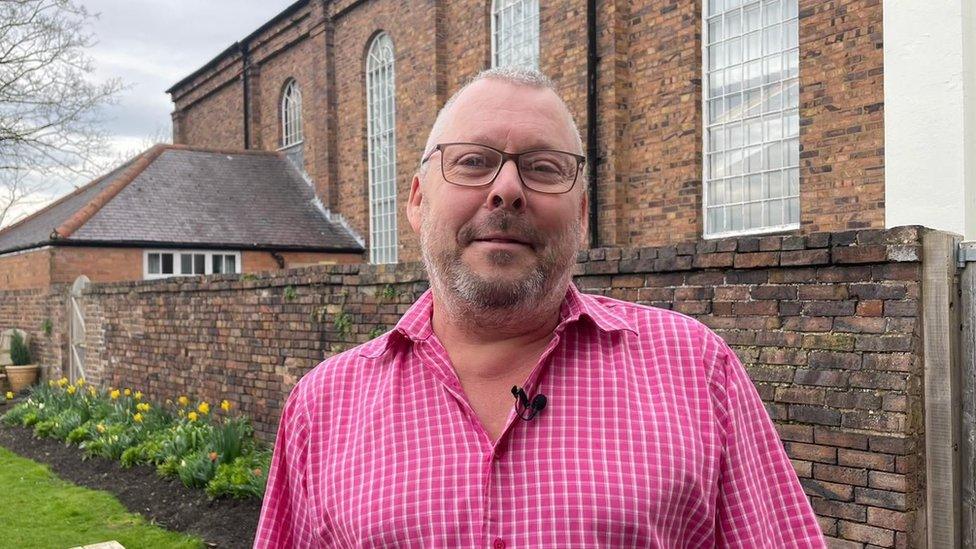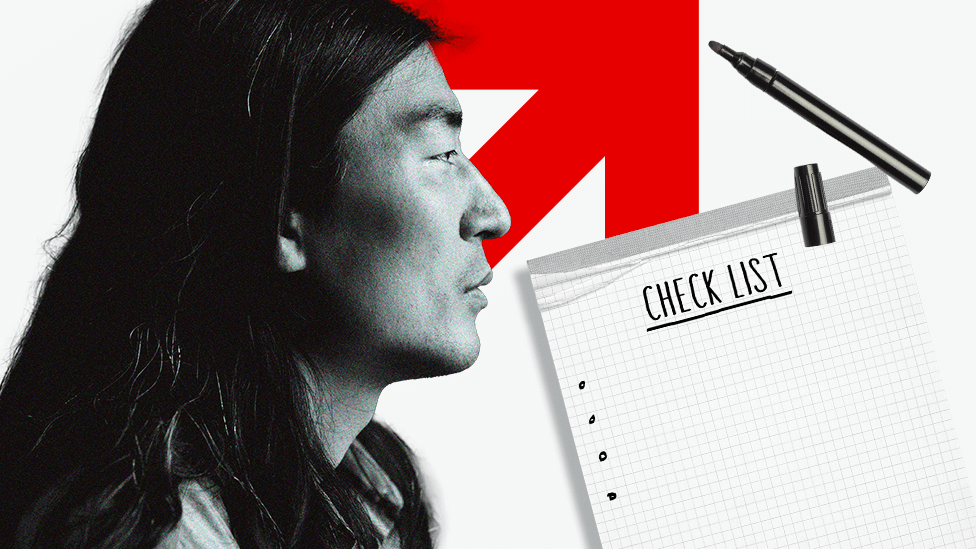Debt relief orders: Fee of £90 axed for poorest
- Published

Olu said being able to apply to clear her debts for free was like a light in a dark place
People on the lowest incomes will be able to apply to have their debts wiped out for free as rules change in April.
Debt Relief Orders clear existing debt on everything from council tax to energy bills and rent.
They cost £90 to apply for which charities said many people in debt could not afford. But from 6 April they will be free in England and Wales.
Olu from London said being able to apply for free "was like a light switch in a dark place for me."
After being made redundant during the pandemic, she struggled to find work and ended up trying to pay her debts through a credit card.
"Honestly I didn't have the money to pay for anything, so that £90 was like another stumbling block for me," she said.
"I was lacking joy, I was lacking peace, everything seems like a dark place," she said. But she said she had hope for the future again, knowing that her application will now be at the top of the pile,

What is a Debt Relief Order?
It is a form of insolvency for those whose debts do not exceed £30,000 - this will rise to £50,000 from 28 June
Applicants have to work with a debt organisation and have no more than £75 left each month once essential costs have been paid
Those applying for DROs can own a car up to the value of £2,000 - this will rise to £4,000 from 28 June
If your application is accepted, some debts will be frozen for one year, then written off
In Northern Ireland DROs still cost £90 and have tighter qualifying criteria, but the Northern Ireland government say similar changes "are currently being considered"
In Scotland the equivalent scheme is a Minimal Asset Process, the fee was scrapped in 2020 and the Scottish Government say broader criteria "will be coming forward to the Scottish Parliament soon".

In recent years DROs have been an increasingly important tool for those struggling the most.
In 2023, some 31,717 DROs were granted in England and Wales - more than at any other point in the last five years.
This year has seen an even more dramatic jump in numbers. January of this year saw a 60% increase in the number of DROs granted compared with January 2023.
In February, the number of DROs increased by 44% compared with the same month in 2023.
Citizen's Advice said up until now nine in 10 of the people they helped apply for a DRO had struggled to cover the £90 fee, with many being priced out of insolvency.
"It's really welcome news but it's not job done," said Rachel Beddow, principal policy manager at Citizens Advice.
She said she was concerned debt advice organisations were not being given any extra resource to meet the extra demand they are expecting.

Jessie got a bursary from a charity to cover the cost of her debt relief order
Jessie in Bridgnorth knows only too well how hard it is to get £90 together.
"That doesn't seem a lot to some people but to me that's two week's worth of shopping," she said.
After a marriage breakdown, with four children to care for, her finances got out of control. Falling behind on her council tax, energy and water bills, she regularly had to use a food bank to make sure her family had enough to eat.
"I felt like I was only just floating above the water anyway to be honest, and then when I found out how much debt I was in, that's when I started to feel like I was drowning, and it was quite scary really."
Jessie was awarded a bursary to cover the cost of the DRO, like lots of the clients who work with Christians Against Poverty.
"It's been amazing actually being debt free," she said. "I don't have to have the fear of somebody knocking on my door, or if my phone rings I'm not worried about who's going to be on the other side."
She's delighted that now that opportunity will be open to more people. "It's a lot of money to find so it's brilliant news. It's going to change a lot of lives."

Debt coach Mark Triggs said the £90 fee had meant many people had been 'too poor to go bust'
Debt charity Christians Against Poverty say around half of their clients have taken out a DRO over the last two years. They are anticipating an 11% increase in the volumes of DROs they are processing over the coming months.
Mark Triggs is a debt coach with Christians Against Poverty in Shropshire. He said the change was important as so many more people are sliding into debt at the moment.
"I've known lots of people who are too poor to go bust," he said. "I can think of three people specifically at this moment in time who it will be manna from heaven to get their debts cleared without having to find the £90 fee."

What to do if I can't pay my debts
Talk to someone. You are not alone and there is help available. A trained debt adviser can talk you through the options. Here are some organisations to get in touch with.
Take control. Citizens Advice suggest you work out how much you owe, who to, which debts are the most urgent and how much you need to pay each month.
Ask for a payment plan. Energy suppliers, for example, must give you a chance to clear your debt before taking any action to recover the money
Check you're getting the right money. Use the independent MoneyHelper website, external or benefits calculators run by Policy in Practice, external and charities Entitledto , externaland Turn2us, external
Ask for breathing space. If you're receiving debt advice in England and Wales you can apply for a break to shield you from further interest and charges for up to 60 days., external

Related topics
- Published27 June 2024
